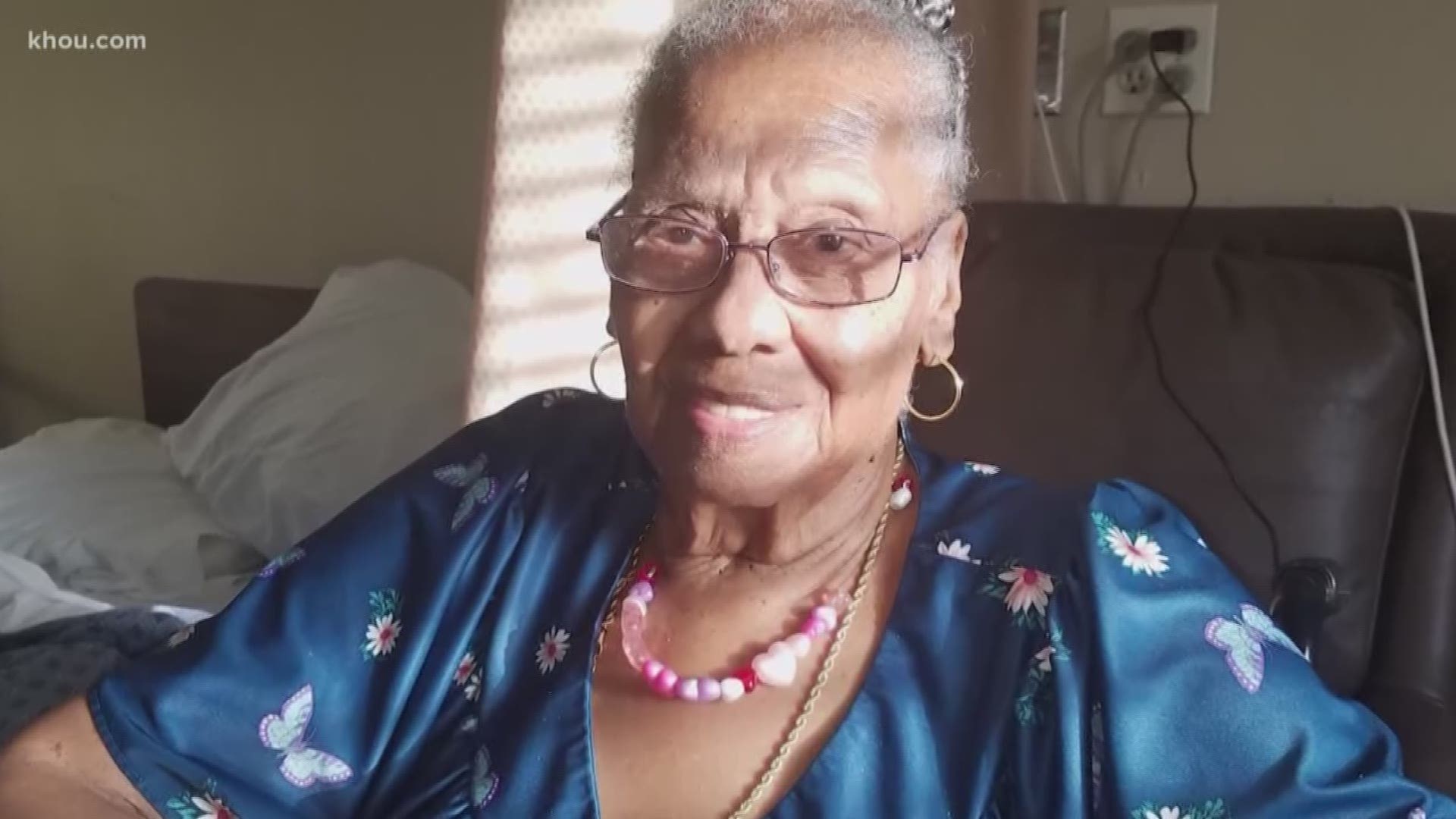HOUSTON — Last Friday, 83 residents and employees at The Resort At Texas City nursing home tested positive for COVID-19.
Gov. Abbott says patients there are being given the antimalarial drug hydroxychloroquine, which was being touted by President Trump as a possible treatment for COVID-19.
“As of today, about 30 patients are being tested with the hydroxychloroquine to determine whether it will be a successful treatment for the patients,” said Gov. Abbott. “They are in the second day of this testing regimen that will last several more days. We look forward to updating you as the week progresses about how this drug is aiding or not these patients.”
One of those 30 patients is 90-year-old Dorothy Cunningham.
"That's my granny," said Alecia Mason.
Mason says her grandmother isn't experiencing major symptoms at this point. She and her family worry about what effect this unproven drug may have on her grandmother.
"I definitely don't want my grandma or anyone else being a guinea pig to something that could potentially 50-50 chance cure them," said Mason.
Medical experts say there’s only anecdotal evidence that it is effective against COVID-19.
Right now, it’s only being used at a doctor’s discretion and only in dire situations.
The Galveston County Health District confirmed they did not request this treatment for these 30 patients. That request came from the nursing home and medical director Robin Armstrong.
KHOU 11 News reached out to Armstrong to discuss the decision to pursue this treatment, but calls were not returned.
The Galveston County Health District said 146 people associated with the nursing home were tested; 83 of those cases came back positive and the rest were negative.
Coronavirus symptoms
The symptoms of coronavirus can be similar to the flu or a bad cold. Symptoms include a fever, cough and shortness of breath, according to the Centers for Disease Control. Some patients also have nausea, headaches and stomach issues.
Most healthy people will have mild symptoms. A study of more than 72,000 patients by the Centers for Disease Control in China showed 80 percent of the cases there were mild.
But infections can cause pneumonia, severe acute respiratory syndrome, kidney failure and even death, according to the World Health Organization. Older people with underlying health conditions are most at risk for becoming seriously ill. However, U.S. experts are seeing a significant number of younger people being hospitalized, including some in ICU.
The CDC believes symptoms may appear anywhere from two to 14 days after being exposed.
Human coronaviruses are usually spread through...
- The air by coughing or sneezing
- Close personal contact, such as touching or shaking hands
- Touching an object or surface with the virus on it, then touching your mouth, nose or eyes before washing your hands.
Help stop the spread of coronavirus
- Stay home when you are sick.
- Eat and sleep separately from your family members
- Use different utensils and dishes
- Cover your cough or sneeze with your arm, not your hand.
- If you use a tissue, throw it in the trash.
- Follow social distancing
Lower your risk
- Wash your hands often with soap and water for at least 20 seconds. If soap and water are not available, use an alcohol-based hand sanitizer.
- Avoid touching your eyes, nose, and mouth with unwashed hands.
- Avoid close contact with people who are sick.
- Clean and disinfect frequently touched objects and surfaces.
- If you are 60 or over and have an underlying health condition such as cardiovascular disease, diabetes or respiratory illnesses like asthma or COPD, the World Health Organization advises you to try to avoid crowds or places where you might interact with people who are sick.

